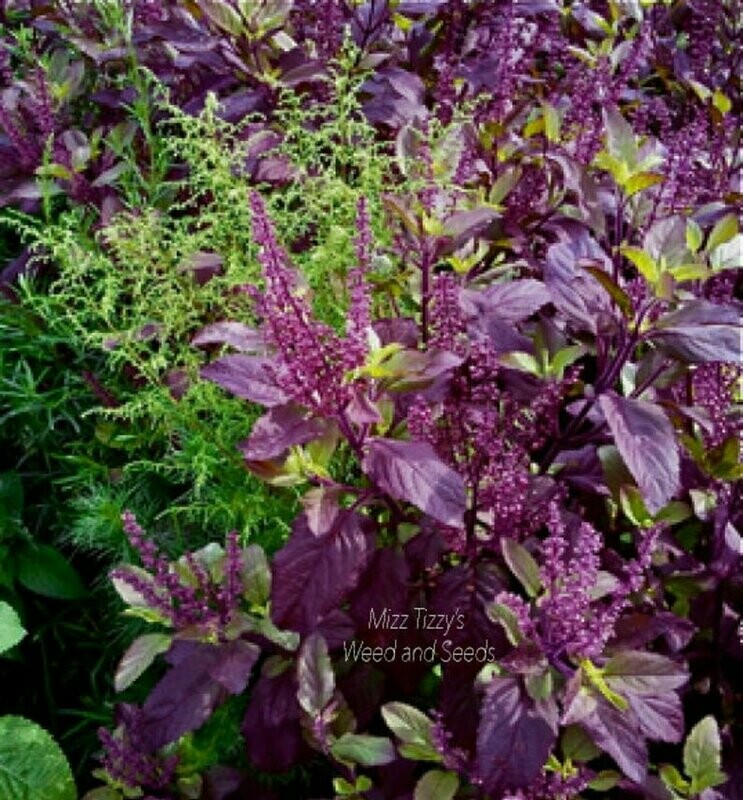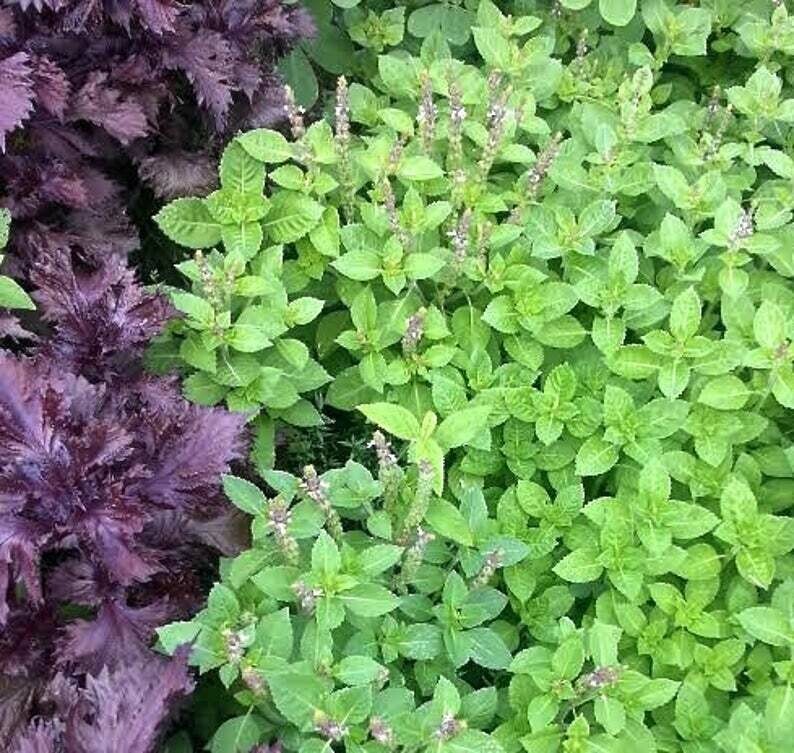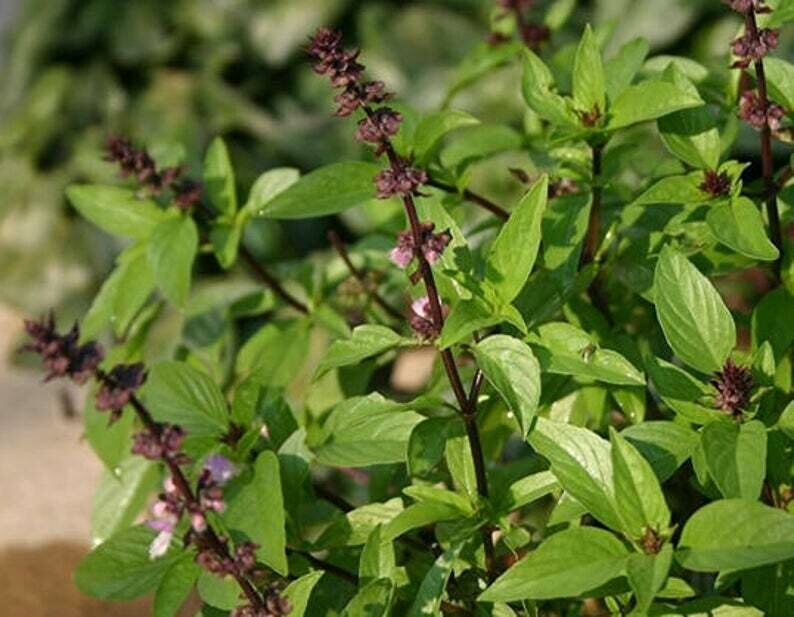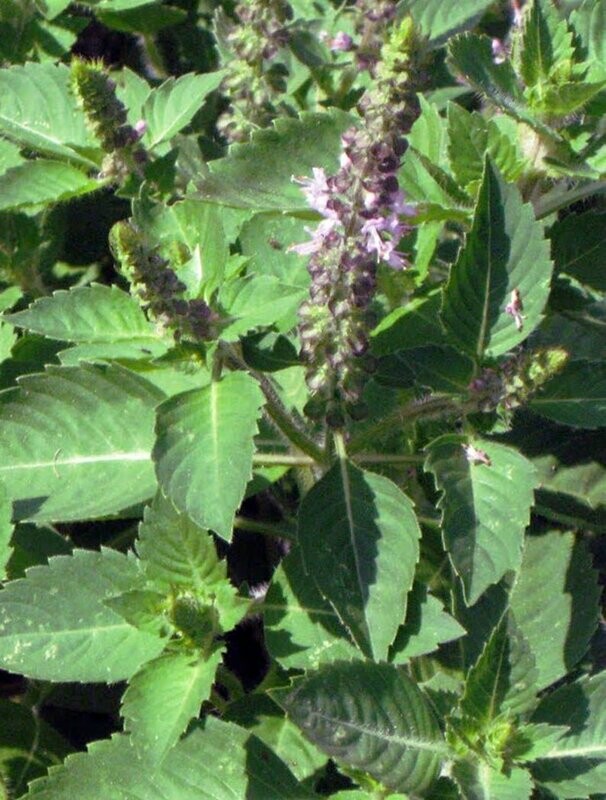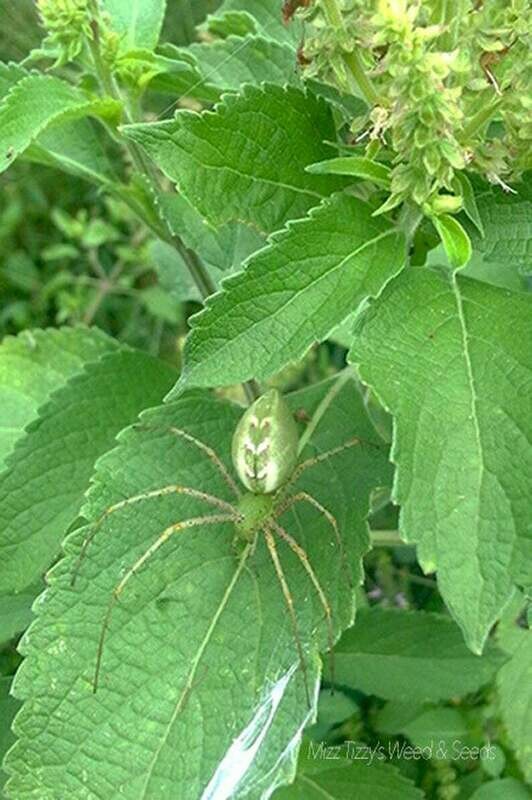Tulsi
This basil is considered quite holy in India and has been cultivated for centuries. It is used in Ayurvedic medicine as an “adaptogen” to counter life’s stresses, including boosting immune system repair. It is considered a sacred plant in the Hindu faith and is often planted around Hindu shrines. The breezes that blow through Tulsi plants, are said to make the surrounding areas blessed, pure and holy, and are beautifully scented at the same time. They protect the areas around where they are planted. The name, Tulsi, translates as “incomparable one.” When started in warmed soils the seeds can be expected to get going within about 16 days but I find that they do better if started in peat pots early in controlled conditions. Of course, when starting seeds, as usual, it all depends upon the conditions your are starting them in. They do not like chilly wet conditions, because they are native to a much warmer part of the world. With these basils, as with all plants, it can be expected that their growth rates, coloring, and potency is all going to depend on the growing conditions of your area, the soil prep you provide, the chemical makeup of your soils, and the warmth of the growing season, the moisture that is received, and all other elements involved in their day to day living conditions, just like our own. A study done in India has found that when Tulsi was planted near homes, and commercial sites, that there was a notably lower frequency of malaria. This is due to the fact the scent of this basil keep the mosquitoes at bay - but the scent to humans is oooohhh so beautiful. This is an herb that should definitely become part of all communities. You will not be without it once you have grown it. Do you own research and see what versatile plants they are, as culinary herbs, for their many medicinal attributes, and as permacultural aids.

